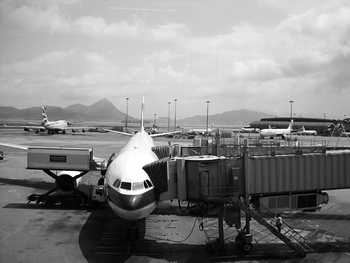The Chinese government is currently undergoing an initiative that encourages Chinese enterprises to “Go Out” and invest in overseas expansion. The “Go Out Policy,” or “Going Global Strategy, ” is an effort initiated in 1999 to encourage businesses to break the current inclination towards China’s inward foreign investment in favor of investments abroad.
Chinese investment growth
Since the “Going Global Strategy’s” inception, China’s economy has made tremendous progress. Chinese investments overseas now cover over 132 countries and regions across the world. China has become a significant source of global FDI outflows, which, according to the U.N. rose from US $ 2.7 billion in 2002 to US $ 84.2 billion in 2012. As a result, China has become the third largest source of global FDI in 2012 (up from sixth in 2011).
Expansion for Chinese businesses has risks
However, with China’s tremendous success, there are some downfalls. As companies are entering a new era of globalization with intense competition and open markets, there are a number of security risks associated with expansion overseas. Namely, Chinese companies are facing issues of weak institutions, poor domestic infrastructure, personal safety and security concerns, and corruption as they invest in these emerging and developing markets. The overall operating environment of many of these countries is challenging and a number of risks must be considered.
Security threats are not universal
While it would be easy to group all security threats together, in reality, each country and each industry has their own set of risks that must be considered. Typically, industries which employ a large blue collar work force and have a long supply chain, face security challenges that differ greatly compared to industries which employ white collar work force and operate in a restricted area that is well developed and governed. The local laws for each area of investment also affect the risks. For example, does the location have a strong local law enforcement presence? If not, there are a number of layers of security that must be considered. In addition, the geographical spread within any country/region would also impact security. In underdeveloped regions, the security concerns tend to be on a higher scale than in more developed areas. Another important security aspect that needs to be kept in mind is the security of travelers (especially high profile travelers), as it becomes a major security concern. This needs to be assessed in a holistic manner, taking into account the local law and order situation, availability of infrastructure, first response capability, culture, customs, profile of the individual and the company, impact of business decisions on the local economy and the work force.
How to minimize risks of international expansion
In order to minimize the risks associated with expanding business outside of China, it is important that companies carry out a risk assessment based on the type of threats that they face both from man-made and natural disasters. In order to have the most comprehensive assessment the following risk areas must be considered:
- Economic
- Geo-political
- Environmental
- Societal
- Technological
- Demographic profile
- Threat profile of the company to cover its people and assets
At the same time, these enterprises should carry out a Political, Economic, Social, Technological, Legal and Environmental (PESTLE) Analysis to understand the risks and formulate a risk mitigation strategy, which consists of an integrated approach dovetailing people, processes and technology. Travel related security needs to be evaluated based on a risk assessment after taking into account the factors mentioned above and reviewing the ground situation. A mitigation strategy designed to minimize any perceived threat to the principal needs to be implemented. This strategy will develop plans for executive protection, crisis management, emergency response and security team training. The companies should improve their legal awareness by studying relevant laws of the country. They should respect the local religions, culture and customs, uphold corporate social responsibility and build a harmonious relationship with local residents. Lastly, it is critical that companies understand the topographical challenges facing their new operations, be familiar with the prevailing internal security environment and coordinate with local Law Enforcement Authorities to enhance the overall security situation.
**Question for Comment: How do you see China’s expansion abroad affecting the local economy?**





